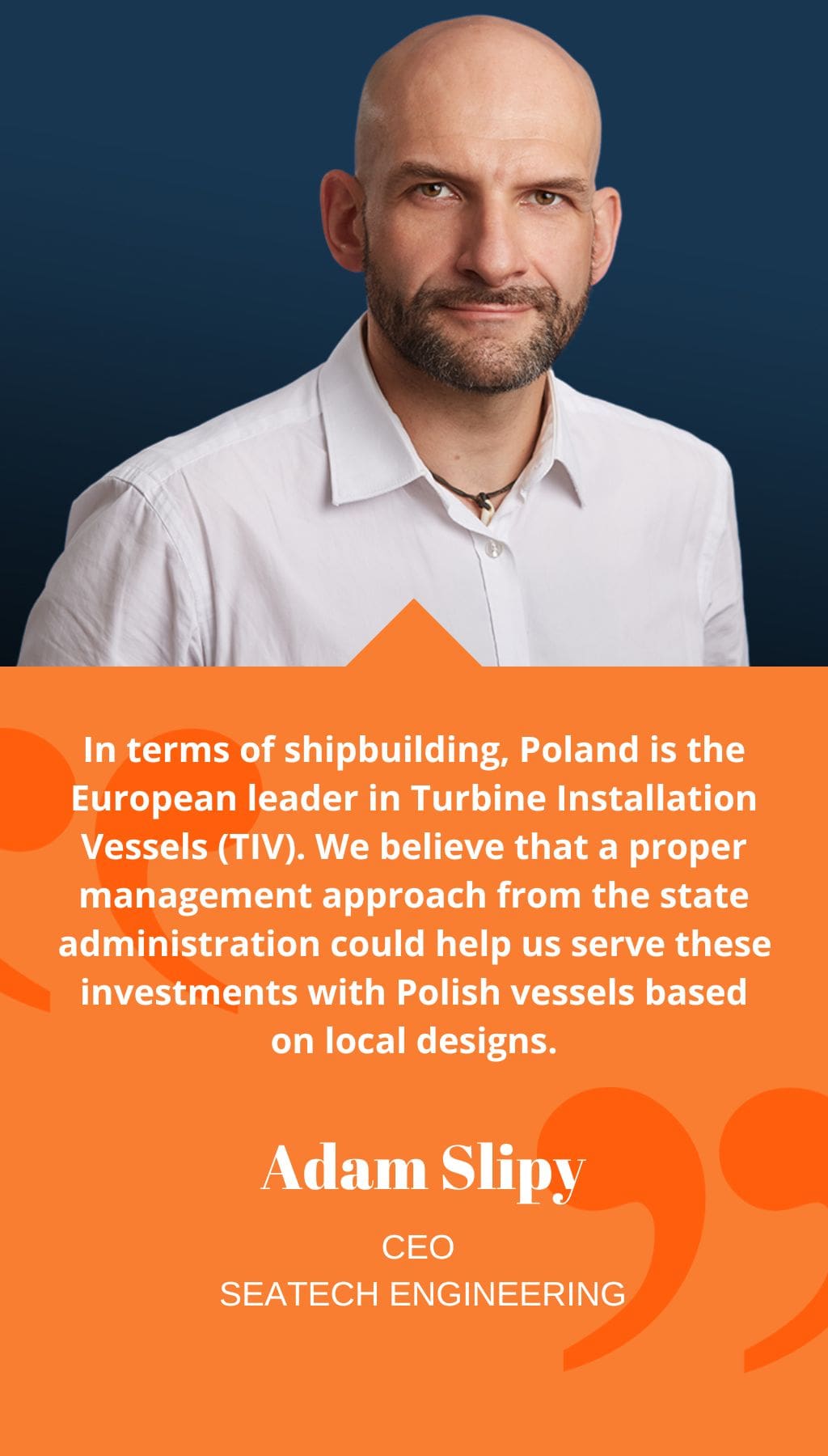
- Poland | 9 July 2019

Can you share with us the story of Seatech Engineering’s transfer of ownership from PIRIOU Group to Polish hands in 2018?
The story of Seatech Engineering’s transfer of ownership began in 2009, during the Lehman Brothers crisis which had a significant impact on our business. As a result, we were compelled to operate more independently and outside the French-based PIRIOU Group. Over the years, we built up our own network of clients, and in 2018, together with PIRIOU, we decided that it was a good time to split. The split was amicable, and we still maintain a cooperative relationship with the group, accounting for about 25% of our current business.
What is the current relevance of LNG to Seatech’s business?
Currently, LNG represents approximately 10% of our workload, but we are confident that it will grow to 30-40% in the near future. It is where most of our efforts go nowadays, and we trust that it will be the future for our company.
Given that LNG is still relatively underdeveloped in Poland, why did Seatech choose to focus on this sector, and what do you see as the drivers for its growth?
Regulation changes are significant drivers for the growth of LNG. Firstly and directly, the reduction of exhaust gas emissions forces the use of new fuels or the implementation of cleaning systems, creating the need for new ships or the retrofitting of existing fleets. Indirectly, new rules pertaining to safety equipment arrangements on big passenger cruisers (motivated by the Costa Concordia accident), have a big influence on supporting ships like LNG bunkering vessels. Both aspects provide a real need for a big demand for new designs and engineering services.
The LNG terminal in Gdansk is being expanded, and a new one is under works in Świnoujście. What value do you think these developments will add to the local LNG market?
Developing LNG infrastructure is a good idea, and we trust that it will serve our business well, but there is room for improvement in terms of implementation. Several state-owned companies are currently developing ideas simultaneously, but there should be more coordination in these approaches since some of them conflict, and others overlap responsibilities. A common strategy would lead to better outcomes.
There is currently great excitement around offshore wind farm development in Poland. Does Seatech Engineering see itself playing a role in this area?
While offshore wind is a new business for Poland, it is not for the world. As a result, many international companies are already ahead in the playing field, particularly in the extent of installation operation. However, in terms of shipbuilding, Poland is the European leader in Turbine Installation Vessels (TIV). We believe that a proper management approach from the state administration could help us serve these investments with Polish vessels based on local designs.














